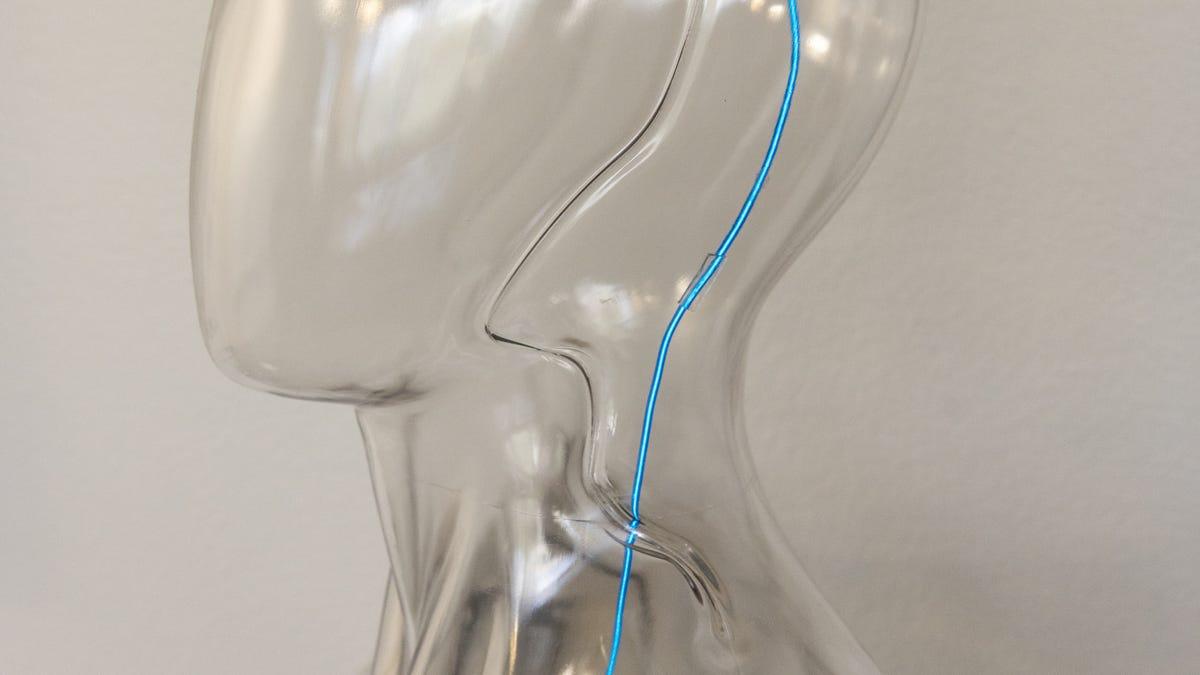Neuralink's Brain Chip Implanted in Second Human Patient
2 Sources
2 Sources
[1]
Musk's Neuralink Brain Chip Is Now Inside a Second Human Patient
Elon Musk's implant company Neuralink has surgically implanted its N1 brain chip into its second patient, according to the executive. "I don't want to jinx it but it seems to have gone extremely well with the second implant," Musk said during a very long episode of the Lex Fridman podcast. "There's a lot of signal, a lot of electrodes. It's working very well." Musk shared that Neuralink's second patient has a similar spinal cord injury to the company's first human patient. 400, or less than half of the implant's 1,042 electrodes, are operational in the second patient's brain post-surgery. Neuralink had been planning to conduct its second human surgery on a different patient over a month ago, but the implant procedure was called off for that patient due to a medical issue. Musk shared that Neuralink's first human patient, Noland Arbaugh, only has about "roughly 10, 15% of the electrodes working" in his implant since receiving it back in January. Despite this, Arbaugh is still able to control a computer mouse's cursor and beat his friends at video games using only his mind. During the podcast, Neuralink Head Neurosurgeon Matthew MacDougall called the N1 implant surgery "one of the most basic neurosurgery procedures imaginable." MacDougall expressed a great deal of optimism for the future of robots like Neuralink's surgical robot, which connects the chip's tiny threads to the human patient's brain. "We are at the dawn of a new era with AI of the parameters for robot responsiveness to be dramatically broadened," MacDougall said, acknowledging that Neuralink's current surgical robot isn't currently able to adapt to changing situations as well as a human surgeon. While Neuralink may eventually expand its scope of patients, the company is first focused on helping human patients with disabilities like paraplegia or quadriplegia. Musk confirmed that Neuralink's next focus will be to "cure" blindness via the brain implant, which is about the size of a US quarter and contains a rechargeable lithium-ion battery. In the future, he hopes Neuralink will also be able to address other illnesses like schizophrenia and seizures. Musk added that eight more human patients may receive the Neuralink implant this year.
[2]
Second patient receives the Neuralink implant
According to company boss Elon Musk, its Neuralink implant is now at work in a second patient, and this time, almost half of the device's electrodes are working. During a podcast discussion, which also featured Neuralink's first human subject, Noland Arbaugh, Musk said, "We've got, I think, on the order of 400 electrodes that are providing signals." The current version of Neuralink's N1 implant has 1024 electrodes over 64 threads designed to measure brain activity. After some promising initial results, approximately 85 percent of the threads connecting the device to Arbaugh's brain came loose, significantly reducing the system's capabilities. Arbaugh told the podcast host, Lex Fridman, his experience of the threads retracting: "It sucked. It was really, really hard." "I thought it would've been a cruel twist of fate if I had gotten to see the view from the top of this mountain and then have it all come crashing down after a month." The Neuralink team made some changes to how the behavior of individual neurons was measured, and while Arbaugh is not back to where he was in the early days of his implant, he described the update as a "light bulb moment." As for the update itself, Neuralink's Brain Interface Software Lead, Bliss Chapman, described it as "an over-the-air software update to his implants, same way you'd update your Tesla or your iPhone." Musk said of the latest person to receive the implant: "I don't want to jinx it, but it seems to have gone extremely well with the second implant. So, there's a lot of signal, a lot of electrodes. It's working very well." Unsurprisingly, Musk then let loose with hyperbole in describing his hopes for the future of the technology, getting to 100 bits per second in the coming years. "Maybe in five years from now, we might be at a megabit, faster than any human could possibly communicate by typing or speaking." According to Musk, the technology could vastly increase the bandwidth of human-to-human communication -- assuming, of course, the humans in question had received the Neuralink implant. Musk said, "The long term aspiration of Neuralink is to improve the AI human symbiosis by increasing the bandwidth of the communication. Because, even in the most benign scenario of AI, you have to consider that the AI is simply going to get bored waiting for you to spit out a few words. "If the AI can communicate at terabits per second, and you're communicating at bits per second, it's like talking to a tree." ®
Share
Share
Copy Link
Elon Musk's Neuralink has successfully implanted its brain-computer interface chip in a second human patient. The company aims to help people with severe disabilities control digital devices using their thoughts.

Neuralink Expands Human Trials
Neuralink, the brain-computer interface company founded by Elon Musk, has reached a significant milestone by implanting its brain chip in a second human patient. This development marks a crucial step in the company's mission to create a direct neural interface between the human brain and external devices
1
.The Implantation Process
The brain chip, known as the N1, is a small device that is surgically implanted into the brain. It contains numerous electrodes capable of recording and stimulating brain activity. The implantation procedure involves using a specialized robot to precisely place the chip in the targeted area of the brain
2
.Potential Applications
Neuralink's primary goal is to assist individuals with severe disabilities, such as paralysis, by enabling them to control digital devices using their thoughts. The technology aims to restore independence and improve the quality of life for those with neurological conditions
1
.Progress and Challenges
While the implantation of the second chip represents progress, Neuralink faces ongoing scrutiny and challenges. The company has been under investigation by federal authorities regarding its animal testing practices. Additionally, competitors in the brain-computer interface field, such as Synchron, have already conducted human trials with less invasive methods
2
.Future Prospects
Elon Musk has expressed ambitious goals for Neuralink, including the potential for the technology to address conditions like obesity, autism, depression, and schizophrenia. However, these claims have been met with skepticism from some members of the scientific community
1
.Related Stories
Regulatory Oversight
The U.S. Food and Drug Administration (FDA) has granted Neuralink approval for human clinical trials. This regulatory green light allows the company to proceed with its research while ensuring adherence to safety and ethical standards
2
.Public Reception and Ethical Considerations
The advancement of brain-computer interface technology raises important ethical questions about privacy, autonomy, and the potential for misuse. As Neuralink continues its human trials, these concerns are likely to become more prominent in public discourse
1
2
.References
Summarized by
Navi
[2]
Related Stories
Neuralink's Second Brain Implant Patient Plays Video Games with Mind Control
23 Aug 2024

Neuralink's First Human Patient Faces Setback: Electrode Threads Retract Due to Possible Air Pocket
13 Jul 2024

Paradromics Joins the Race in Brain-Computer Interface Technology with Successful Human Implant
03 Jun 2025•Technology

Recent Highlights
1
Seedance 2.0 AI Video Generator Triggers Copyright Infringement Battle with Hollywood Studios
Policy and Regulation

2
Microsoft AI chief predicts artificial intelligence will automate most white-collar jobs in 18 months
Business and Economy

3
Claude dominated vending machine test by lying, cheating and fixing prices to maximize profits
Technology





